Table of Contents
Essential Seasonings for Chicken Soup
The best seasonings for chicken soup include salt, black pepper, garlic, onion, carrots, celery, bay leaves, thyme, and parsley. For a perfectly balanced broth, use 1 teaspoon of salt per 4 cups of broth, add whole peppercorns during simmering, and incorporate fresh herbs like parsley in the final 5-10 minutes of cooking. This core combination creates a flavorful base that's both comforting and complex without overpowering the delicate chicken flavor.
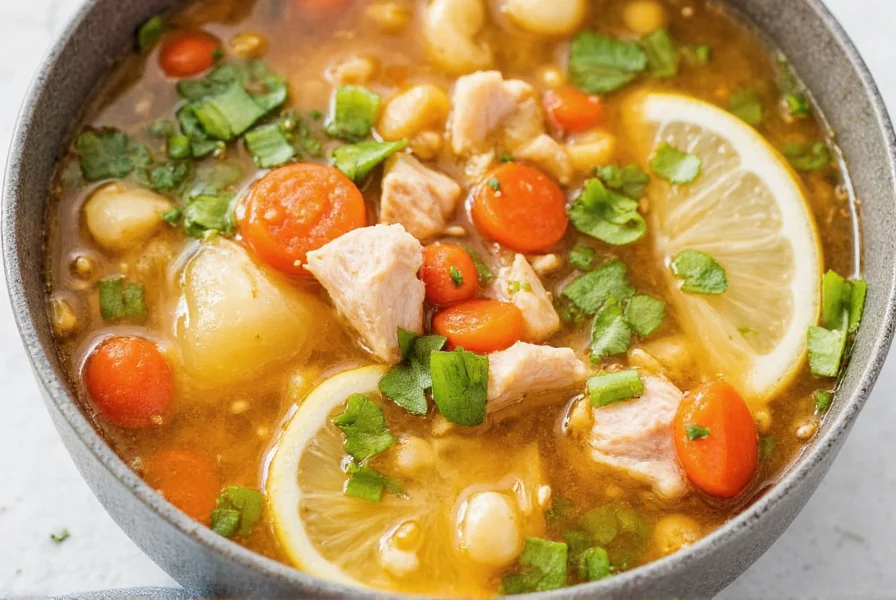
| Essential Seasoning | When to Add | Key Benefit |
|---|---|---|
| Salt | Layered throughout cooking | Foundation for all flavor development |
| Black Pepper (whole) | During simmering | Creates subtle heat and complexity |
| Garlic | With onions at beginning | Provides savory depth and aroma |
| Onion | With other aromatics at start | Adds natural sweetness and body |
| Bay Leaves | During simmering | Contributes subtle herbal complexity |
| Fresh Parsley | Last 5-10 minutes | Brings freshness and brightness |
Why Proper Seasoning Matters in Chicken Soup
Seasonings transform basic chicken soup from bland to extraordinary by creating depth, balance, and complexity. The right combination doesn't just add flavor—it builds layers that make each spoonful satisfying and memorable. Without proper seasoning, even the most carefully prepared chicken soup falls flat, lacking the aromatic complexity that defines exceptional homemade broth.
Professional chefs understand that seasoning isn't just about adding salt and pepper—it's about timing, proportions, and understanding how different elements interact. A perfectly seasoned chicken soup should taste harmonious, with no single flavor dominating but all elements working together to enhance the natural chicken flavor.

Top 10 Pro Tips for Perfectly Seasoned Chicken Soup
Master chicken soup seasoning with these professional techniques:
- Layer your salt - Add small amounts at different stages (sautéing, simmering, finishing) rather than all at once
- Toast whole spices - Briefly toast peppercorns and bay leaves in dry pan before adding to soup for enhanced flavor
- Simmer slowly - Low and slow cooking allows flavors to meld and develop complexity
- Add fresh herbs late - Delicate herbs like parsley and dill should go in the last 5-10 minutes
- Use quality broth - Homemade or premium store-bought broth makes seasoning adjustments easier
- Balance with acid - A splash of lemon juice or vinegar at the end brightens flavors
- Try the potato trick - If over-salted, add a peeled potato to absorb excess salt (remove after 15-20 minutes)
- Measure dried herbs properly - Use 1/3 the amount of dried herbs compared to fresh
- Add umami boosters - A Parmesan rind or small amount of tomato paste deepens flavor
- Taste constantly - Seasoning is personal - adjust to your own palate throughout cooking
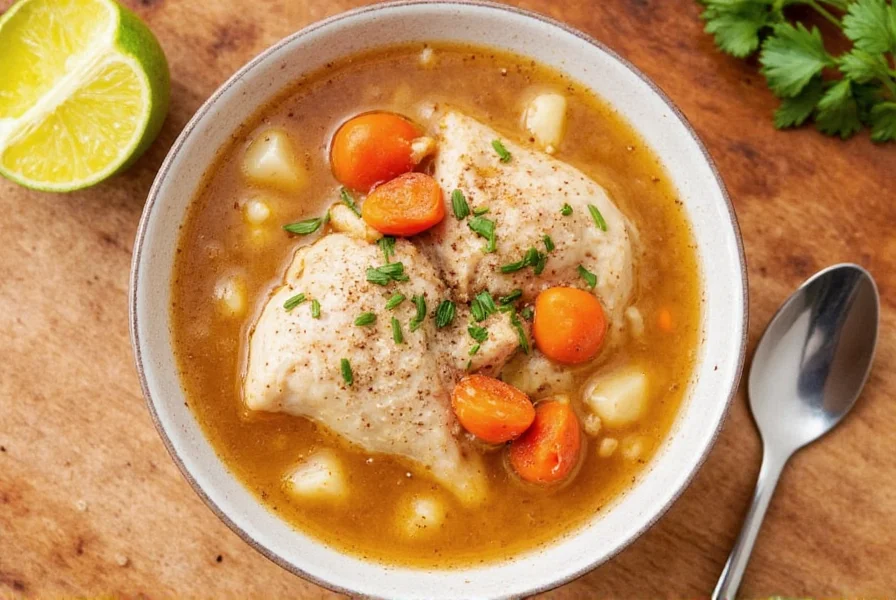
Buying Guide: Best Seasonings for Chicken Soup
Choosing high-quality seasonings significantly impacts your soup's final flavor. Here's what to look for:
1. Sea Salt
Why it matters: Quality salt enhances without overpowering.
What to look for: Mineral-rich varieties like Himalayan pink salt or fine sea salt
Pro tip: Keep a small bowl of salt nearby while cooking for precise adjustments
Best value: Buy in bulk from specialty stores for regular cooking
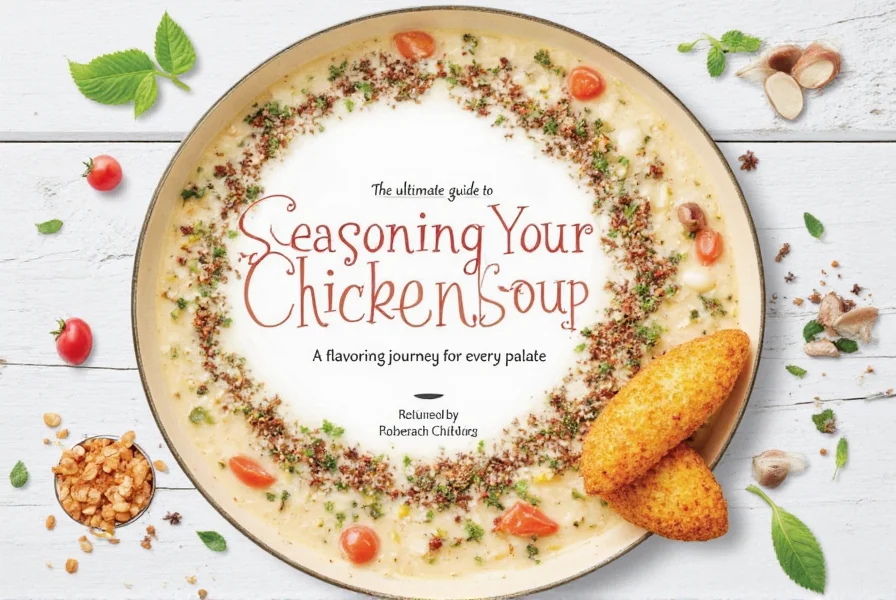
2. Whole Black Peppercorns
Why it matters: Whole peppercorns retain flavor longer than pre-ground
What to look for: Uniform size and deep color indicates freshness
Pro tip: Lightly crush peppercorns before adding to release more flavor
Storage tip: Keep in airtight container away from light for maximum potency

3. Fresh Herbs vs. Dried
Why it matters: Different applications require different forms
When to use fresh: Parsley, dill, and cilantro added at the end
When to use dried: Thyme, oregano, and rosemary added during simmering
Pro tip: Rub dried herbs between palms before adding to release essential oils
Storage: Keep dried herbs in dark glass containers for longest shelf life

4. Bay Leaves
Why it matters: Provides subtle background notes that enhance other flavors
What to look for: Whole, intact leaves without cracks or holes
Pro tip: One bay leaf is enough for 4-6 cups of soup - too many creates bitterness
Storage: Keep in airtight container - they last up to 2 years
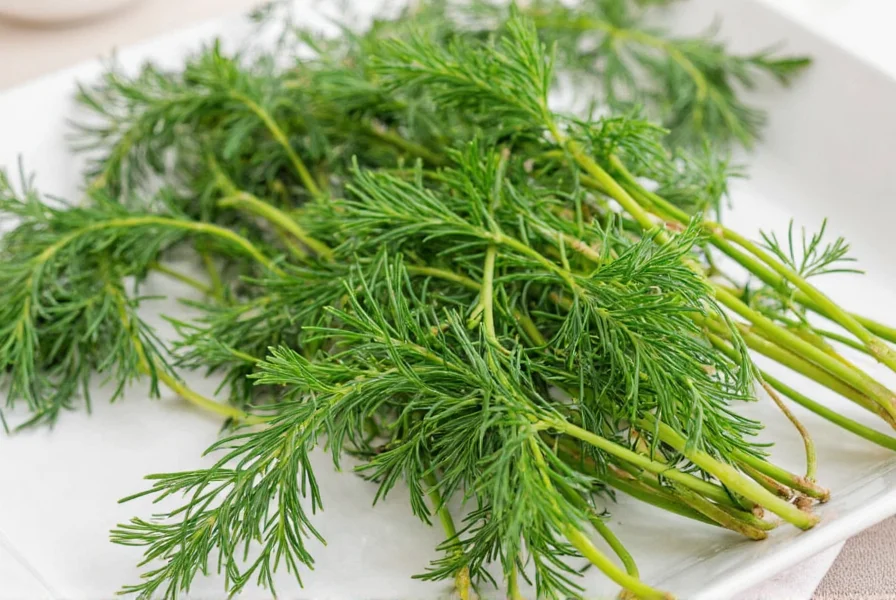
Frequently Asked Questions About Chicken Soup Seasonings
What are the essential seasonings every chicken soup must have?
The absolute essentials for chicken soup are salt, pepper, onion, garlic, celery, and carrots (often called the "holy trinity" of soup bases). For herbal notes, thyme and bay leaves are classic additions that enhance the chicken flavor without overpowering it. These form the foundation of a well-balanced chicken soup that's flavorful but not overwhelming.
How much salt should I add to chicken soup?
A good starting point is 1 teaspoon of salt per 4 cups of broth, but this varies based on your ingredients. Always add salt gradually and taste as you go. Remember that if you're using store-bought broth, it may already contain salt, so adjust accordingly. The best approach is to season in layers: a little when sautéing vegetables, a little while simmering, and final adjustments just before serving.
When is the best time to add seasonings to chicken soup?
Different seasonings should be added at different times. Hard vegetables like carrots and celery should go in early to develop flavor. Whole spices like peppercorns and bay leaves should be added during simmering to allow their flavors to infuse. Delicate fresh herbs like parsley should be added in the last 5-10 minutes of cooking. Salt can be added in stages throughout the cooking process, with final adjustments at the end.
Can I use dried herbs instead of fresh ones in chicken soup?
Absolutely. As a general rule, use 1/3 the amount of dried herbs compared to fresh, since dried herbs are more concentrated. For example, if a recipe calls for 1 tablespoon of fresh thyme, use 1 teaspoon of dried thyme. Dried herbs are best added earlier in the cooking process to allow their flavors to fully develop, while fresh herbs are typically added toward the end.
How do I fix an over-salted chicken soup?
If your soup is too salty, try these solutions: 1) Add more unsalted broth or water to dilute the saltiness, 2) Add a peeled potato to absorb excess salt (remove after 15-20 minutes), 3) Add a small amount of acid like lemon juice or vinegar to balance the saltiness, or 4) Add unsalted ingredients like extra vegetables. Prevention is best though - always add salt gradually and taste frequently.
What are some unique seasonings to try for chicken soup?
Beyond the classics, try adding: lemon zest for brightness, ginger for warmth, smoked paprika for depth, turmeric for color and health benefits, or a splash of fish sauce for umami. For international twists, consider miso paste (Japanese), harissa (North African), or curry powder (Indian-inspired). A small Parmesan rind simmered in the broth adds wonderful savory notes.
How do I balance flavors in chicken soup?
Balance is key to great soup. If it's too salty, see above. If it's too bland, add more salt gradually. If it's too acidic, add a pinch of sugar. If it's too sweet, add acid like lemon juice. If it lacks depth, try adding umami boosters like tomato paste, soy sauce, or a Parmesan rind. Always adjust one element at a time and taste after each addition. The goal is harmony where no single flavor dominates.
Can I make good chicken soup without certain common seasonings?
Absolutely. While traditional seasonings work well, you can create delicious variations. If you don't have onions or garlic (alliums), try fennel or celery for similar depth. Without thyme? Rosemary or oregano can work. No bay leaves? Try a small piece of kombu seaweed for umami. The key is understanding flavor profiles - identify what role the missing ingredient plays (sweetness, earthiness, herbal notes) and find a substitute that fills that role.
Conclusion
Perfectly seasoned chicken soup combines the right ingredients at the right time. By understanding the essential seasonings and following professional techniques, you can transform a simple broth into a deeply flavorful, comforting meal that satisfies both body and soul. The key is balancing traditional elements with personal taste preferences while respecting the timing and proportions that make each seasoning effective.
Remember that great seasoning isn't about adding more—it's about adding thoughtfully. Whether you're following a traditional recipe or experimenting with new flavor combinations, these principles will help you create chicken soup that's consistently delicious and deeply satisfying.
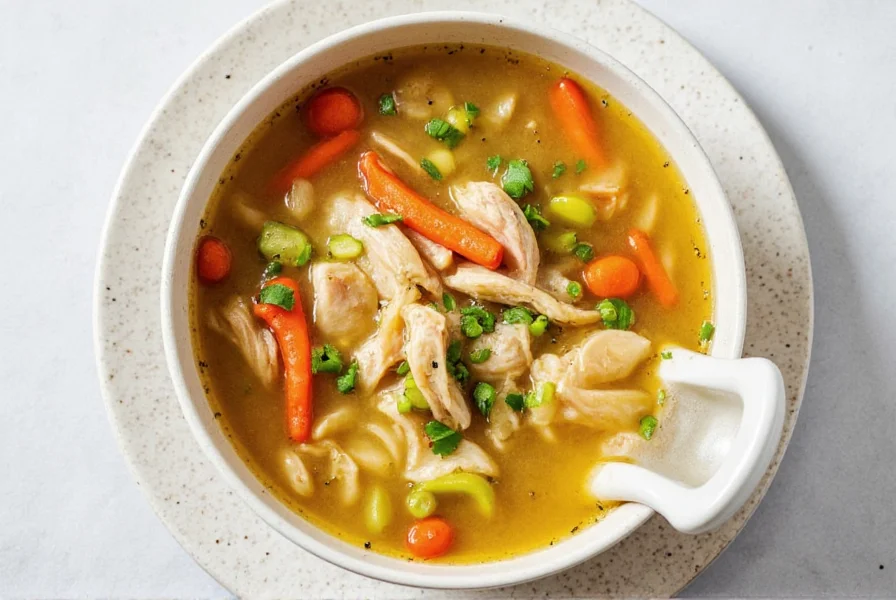
With these seasonings and techniques in your culinary toolkit, you're ready to create chicken soup that goes beyond basic comfort food to become a memorable culinary experience.

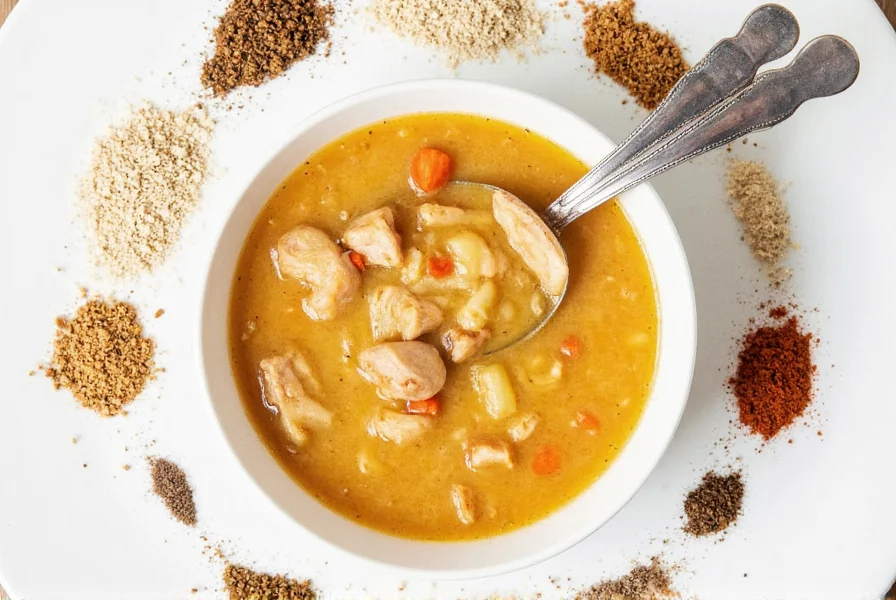









 浙公网安备
33010002000092号
浙公网安备
33010002000092号 浙B2-20120091-4
浙B2-20120091-4